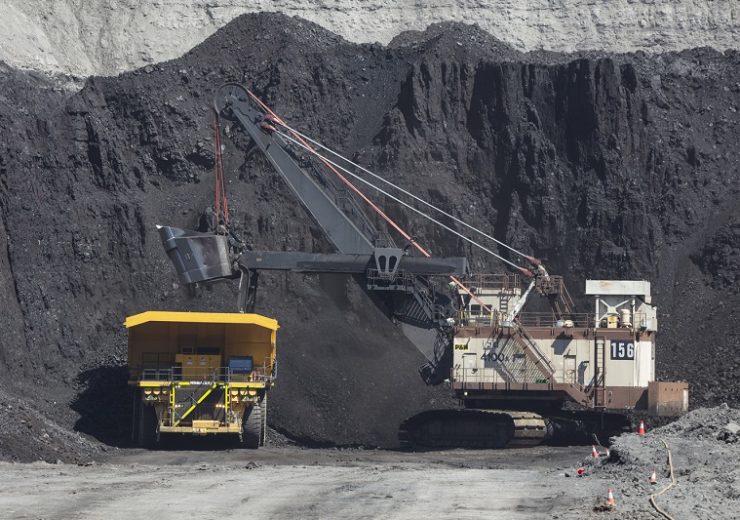In June 2019, Peabody Energy and Arch Coal agreed to merge their respective coal assets in the Powder River Basin and Colorado

Operations at the North Antelope Rochelle Mine owned by Peabody Energy. (Credit: Peabody Energy, Inc.)
Peabody Energy’s proposed joint venture with rival US coal producer Arch Coal has hit a roadblock with the Federal Trade Commission (FTC) filing an administrative complaint against it on anti-competition grounds.
As per the deal announced in June 2019, the two mining companies agreed to merge their respective coal assets in the Powder River Basin (PRB) and Colorado into a joint venture to target nearly $820m in synergies.
In its administrative complaint, the FTC alleged that the transaction will remove competition between Peabody Energy and Arch Coal, which are the two main competitors in the market for thermal coal in the Southern Powder River Basin. Apart from that, the commission said that the parties are also the two largest coal mining firms in the US.
The FTC has also asked its staff to file a complaint against the proposed transaction to seek a temporary restraining order and preliminary injunction in the US District Court for the Eastern District of Missouri. The purpose of the legal complaint will be to enforce the status quo until an administrative trial is undertaken into the merits of the deal.
Peabody Energy and Arch Coal responsible for most of the coal produced in the Southern Powder River Basin
According to the FTC, Peabody Energy and Arch Coal accounted to more than 60% of the coal produced in the Southern Powder River Basin in the year 2018.
The complaint also alleges that the two companies put together control more than 60% of the coal reserves in the basin.
As per the FTC, the coal produced in the Southern Powder River Basin is attractive to electric power producers in the central US and upper Midwest. This is due to the deposits being comparatively inexpensive to extract to deposits found elsewhere.
Furthermore, the sulphur and sodium content of the deposits in the basin are said to help electric power plants to burn substantial quantities while complying with environmental regulations.
The FTC complaint also claims that owners of power generation units designed to burn coal sourced from the Southern Powder River Basin have high fixed costs. The regulator alleged that such units cannot replace the basin’s coal readily with natural gas, wind, solar, or nuclear fuels.
The FTC voted 4-1 in favour of both the administrative complaint and the filing of the complaint in the Missouri court.
The administrative trial is slated to commence in August 2020.
